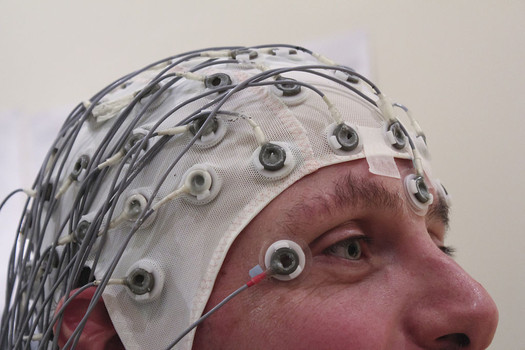Music hath charms to soothe the suffering epileptic according to research conducted by Dr. Christine Charyton, adjunct assistant professor and visiting assistant professor of neurology at The Ohio State University Wexner Medical Center. The effect that music has on the parts of the brain that respond to music is more synchronized to music in people that have epilepsy than in people that are not epileptic.
Music is processed in the temporal lobe of the brain. The majority of epilepsy patients experience seizures that originate in the temporal lobe of the brain. The researchers found that music produced a more regular rhythm of brain waves in people that had epilepsy indicating the people were less likely to experience seizures as frequently.
The researchers examined the responses of 21 patients who were in the epilepsy monitoring unit at The Ohio State University Wexner Medical Center for one and one-half years. The patients randomly listened to 10 minutes of silence, 10 minutes of classical music, and John Coltrane’s version of ‘My Favorite Things.’ Each interval of music was separated by an interval of 10 minutes of silence.
The researchers expected music and silence to be processed differently in the brain of people that had epilepsy and people that did not have epilepsy as recorded by an electroencephalogram. The calming effect of music on seizure frequency and severity was a surprise. The researchers do not expect to replace commonly used therapies for epilepsy with music but support the addition of music as a therapy that has the advantage of portability.








